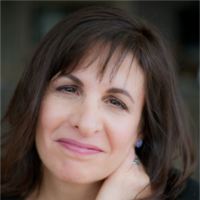This fourteenth episode of the Philosophy Bakes Bread radio show and podcast is a special new edition of the show. It’s the first of what we are calling a “Breadcrumb.” A Breadcrumb is a short, 8-15 minute episode that was cut off from a longer show, or that’s a collage of little clips. We may occasionally also record short Breadcrumb episode to have a little more time for a proper “You Tell Me” segment, in which we get to reply substantively to listener feedback. This first Breadcrumb centers on questions that Dr. Anthony Cashio really wanted to add after our interview with Dr. Jana Mohr Lone, especially about how one can get started teaching philosophy to children.

As always, you can reach out to us on Facebook @PhilosophyBakesBread and on Twitter @PhilosophyBB; email us at philosophybakesbread@gmail.com; or call and record a voicemail that we play on the show, at 859.257.1849. Philosophy Bakes Bread is a production of the Society of Philosophers in America (SOPHIA). Check us out online at PhilosophyBakesBread.com and check out SOPHIA at PhilosophersInAmerica.com.
(10 mins)
Click here for a list of all the episodes of Philosophy Bakes Bread.



Subscribe to the podcast!
We’re on iTunes and Google Play, and we’ve got a regular RSS feed too!
Notes
- In this episode, Dr. Lone mentions the story of Gyges’s Ring. It is a story that asks what you would do if you could get away with anything. She mentions a resources available to help introduce the story to children. That resource is available on the Web site of the Philosophy Learning and Teaching Organization (P.L.A.T.O.) here: http://www.plato-philosophy.org/teachertoolkit/justice-and-utopia/.
- The homepage of the Philosophy Learning and Teaching Organization (P.L.A.T.O.) is here: http://www.plato-philosophy.org/.
Connect with us!
Tell us what you think! Reach out to us and follow the show on Twitter, Facebook, by way of Email, or by commenting here below!
Transcript
For those interested, here’s how to cite this transcript or episode for academic or professional purposes (for pagination, refer to the printable, Adobe PDF version of the transcript):
Weber, Eric Thomas, Anthony Cashio, and Jana Mohr Lone, “How to Begin Philosophy with Children,” Philosophy Bakes Bread, Transcribed by Drake Boling, WRFL Lexington 88.1 FM, Lexington, KY, April 3, 2017.
[Intro music]
Dr. Weber: Welcome everyone, to a special short edition of Philosophy Bakes Bread, which we call a ‘breadcrumb’.
[Crumble sound effect]
Dr. Cashio: Crumble, crumble. Philosophy Bakes Bread is a production of the Society of Philosophers in America. In our breadcrumb episodes, we are going to include either snippets from past episodes that got cut off the loaf of previous episodes,
Dr. Weber: Or we may include more responses to your feedback that we received on Twitter @PhilosophyBB, on Facebook at Philosophy Bakes Bread, or by email, at philosophybakesbread@gmail.com.
Dr. Cashio: What do we have up for our crumb this time around, Eric?
Dr. Weber: This time around, we ended up with a really sweet segment after we interviewed Dr. Jana Mohr Lone on Philosophy For Children, a certain sneaky philosopher named Dr. Anthony Cashio, after our interview, snuck in a personal question he really wanted answered from Dr. Lone. What was that about? That was you, I think, wasn’t it?
Dr. Cashio: For those of you that listened to the episode, Dr. Lone, we were talking about how to teach philosophy with children and doing philosophy with children. So I had some questions of my own about how to think about getting started and some resources to look at, and her answer was fantastic and really insightful. I’m going to play it and let the listeners get all of the information they need right here.
Dr. Weber: Alright folks, hope you enjoy this, our first Philosophy Bakes Bread breadcrumb.
[begin pre-recorded segment]
Dr. Cashio: That was really…
Dr. Weber: I think that was a lot of fun.
Dr. Lone: I had a lot of fun!
Dr. Cashio: While we have you here, can I ask you a question or two?
Dr. Weber: I don’t think questions are allowed, actually Anthony.
Dr. Cashio: It’s a personal/professional question.
Dr. Weber: I’m going to keep the recording going now.
Dr. Cashio: I’m starting teaching, doing philosophy for children here at the elementary school. Part of my “How do I start?”, that was kind of for me. I’m in a small town. There’s one elementary school and that’s it. How do I approach the school?
Dr. Lone: Are your kids there?
Dr. Cashio: Both of them are there, yes.
Dr. Lone: I would start with their teachers. Our approach has always been to go from the ground up, as opposed to from the top down. Teachers don’t really react well often to administrators coming in and saying, “You’re all going to have philosophy now, or you’re all going to do this or…” but teachers are often totally open to having someone come in and do philosophy. Then what happens, at least in our experiences, one class starts to have it, other teachers start to hear about it. It starts to grow. That kind of thing. I always just say “I’d like to come in and do a demonstration class.” They are committing to 45 minutes or an hour or whatever, and that’s all they are committing to. I have never had anyone not say “Can you come back?”
Dr. Cashio: That’s you though. So I’m hoping…
Dr. Lone: I would say it’s true of all of my colleagues here too. The thing is, what happens is that the kids love it. The teachers are able to see the kids in a very different way. I have had teachers tell me, and we were just talking about this recently, because we had a group of trustees come to visit us at the school this week and they were asking us about our work and one of the graduate students said, “Yeah, I have teachers tell me all the time, I get to see kids in a different way. I’m just observing someone else is in here leading the session, and I’m hearing kids talk about things and I’m seeing the way their minds work in ways that I don’t get to see otherwise.” We have found that teachers really take to it. I’m sure now, I’m sure its true that there is so much focus on testing, there’s so much focus on standards. Having a kind of interlude where someone comes in once a week and does this is really powerful for the kids and the teachers start to see kids who aren’t talking very much maybe in math or reading, who come alive in philosophy. The other thing we’ve had teachers tell us is that some of the testing, especially the reading and listening and response stuff, one third grade teacher said to me last year, “We’re not even practicing because we’ve had all that in philosophy. They’re so on top of that we don’t need to do anything else for the test.
Dr. Cashio: That’s great. I can look at these web sources to get an idea for early lesson plans.
Dr. Lone: A great first one that I use a lot when I do demonstration classes is the Ring of Gyges. Just come in and tell them the story, right? We have a little abbreviated Ring of Gyges story on our website. Come in, tell them the story, and ask them “What would you do with the ring?” Then you can get into this conversation with them. Some students will say they are going to like to do good things. They are going to feed, help someone who wouldn’t want their help but if they were invisible they wouldn’t help them. When you ask a question like “Are people only good because they are afraid of the consequences? Or are good people for other reasons?” it’s always great. It’s always a great opener.
Dr. Cashio: My other question is along the same line. I’m the only philosopher, I think, in the city. In the entire town. My question is, in your experience with the general time commitment, I have to balance life, working. That would be my only other concern.
Dr. Lone: If you want to start doing, just do a 45-minute class once a week, or every other week in one or both of your kids’ classrooms. Start with that. The thing I think you’ll find that I find, is that it’s one of the things you look most forward to because it’s so much fun. It gives you energy for philosophy in a different way. I’m happy, you can always email me. I’m happy to brainstorm, happy to talk about ideas.
Dr. Cashio: I appreciate that. It’s something that I’ve always wanted to do, I just never know how to take the first baby steps.
Dr. Lone: I started with my own kids. That’s definitely where I started. I talked to their teachers and I ended up in their classrooms and that’s how it started. It’s easy.
Dr. Lone: You jokingly said not to use the dreaming problem because I was laughing because that’s one of the first things I’d do with my son. How do you know you’re not dreaming. He’s like, “What?” That might have been too much. “What are you talking about dad?”
(laughter)
He’s going to be my little existentialist though. He’s got this really healthy view about death. I wish I had this. They sent this work sheet home, “In a hundred years, I will be…” and you’re supposed to draw where they’ll be in a hundred years, and then write something underneath it. I was like, are they trying to give him and existential [crisis]? His thing is “In a hundred years I will be” and he says “In the grave”. (laughter). There’s a picture of his gravestone…it’s like my favorite thing he’s ever done.
Dr. Weber: He’s probably right, right?
Dr. Cashio: He’s like, “Of course I’m going to… I’m going to be 109, dad. I’m gonna be dead. Where do they think I’m going to be?” I was like… are they trying to give him a crisis?
Dr. Weber: I don’t know what they were expecting.
Dr. Cashio: I really don’t. It’s like in a hundred years I will be…I get “In a hundred years the future will be…”, but what would happen to me in 100 years? I wonder what the rest of his students did. Well thank you. That was really great advice. Sorry to jump on you at the end there; it was this opportunity I could take.
Dr. Lone: No problem.
Dr. Weber: We may have to have you back sometime.
Dr. Lone: I’d be happy to do it. I love doing this kind of thing.
[begin live]
Dr. Weber: We didn’t plan for there to be such a great question in our first breadcrumb, but in this case there was a great question. That question was, “What would you do with the Ring of Gyges?” What is the Ring of Gyges, you say? That’s a good question. If any of you watched The Lord of the Rings, it’s a ring that can make you invisible and help you get away with stuff. Basically, in short, if you could get away with anything, doing anything and not being seen or caught, what would you do? That is the question of this philosophical breadcrumb.
Dr. Cashio: I hope everyone enjoyed this little breadcrumb! (laughter) It’s so dumb!
Dr. Weber: I’m totally keeping that. Remember that you can call us and leave a short, recorded message with a question or a comment that we may be able to play on the show at 850-257-1849. 869-257-1849. You can also reach us on Twitter, Facebook and email. For any of that info again, visit philosophybakesbread.com
Dr. Cashio: This has been Dr. Anthony Cashio and Dr. Eric Weber with Philosophy Bakes Bread: food for thought about life and leadership.
[outro music]






